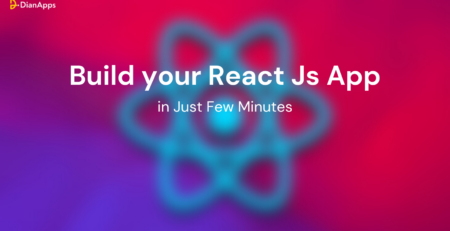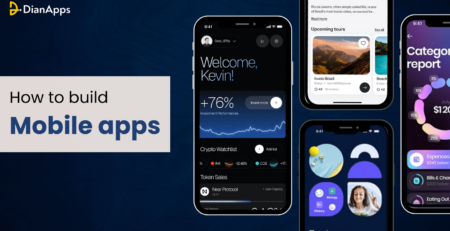Is React Native the Right Platform for Your Next App?
React Native is recurrently winning the hearts and minds of techies all across the world. But is the framework a suitable platform for your project? With the growing number of developers and applications on the internet, React Native app development has proven to be effective and resourceful.
With over 58% of app developers making React Native framework their number one preference, what possible benefits does the platform deliver that results in establishing a base for future business growth? Well, right from setting up your application and inducing features that complement the business model, React Native provides the best mobile app development services.
However, to find out React Native’s actual personification that further confirms its right fit for your app project, this blog covers the benefits, drawbacks and future outcomes of choosing React Native for business.
What is React Native App Development?
React Native was incepted in the year 2017 by one of the tech giants, Facebook. The framework was built on JavaScript and React which enables app developers to create cross-platform apps that run seamlessly on both iOS and Android devices at the same time with the help of single code-base functionality. This further makes an app not just budget-friendly but also natively compelling.
By native we mean, React Native app developers use parts of “Native Components” which were earlier used in creating iOS and Android apps separately. This combination resulted in the creation of high-performing, smooth-functioning, responsive, user-friendly applications.
Another important reason why React Native is so popular is due to its multitude of libraries and tools that help a developer in testing, debugging, and launching apps on your favourite App Store or Play Store and are already being used by top mobile app development company like DianApps across the globe.
Is this all enough to make React Native your app development framework in business development? We have a bucket list of advantages that might entice your journey with the open-source framework. Let’s find that out below!
What Makes React Native the Right Platform for Your Next App Development?
Here are a few important reasons why businesses should choose React Native for their next app development project.
1. Cost-Cutting Solutions:
Being a cross-platform & open-sourced app development framework, React Native uses a single and minimal code base to create apps that run similarly to each platform it is deployed upon. This single usage of code saves resources while lowering down cost of building a next-gen application.
If you need to find out the actual cost of React Native app development, keep reading our comprehensive guide in detail.
2. Faster Development:
Living in a digitally challenged world, building apps faster and pushing them further in the marketplace and gaining profits instantly is what businesses aim at. Using React Native helps you conquer that! It does not require multiple development cycles because of the code reusability that fits perfectly on both iOS and Android app development services.
3. Improved User Experience:
Nowadays, user experience is so important. It helps in navigating app viewers more effectively while giving them an effortless and robust app interface. React Native holds the capability to provide improved user experience.
4. Access to Native APIs:
Indeed, React Native does not support JavaScript API with the native calendar libraries. However, with its empowerment to native APIs through the native modules, a React Native app development company can completely take advantage of device-specific capabilities and functionality.
5. Large and Active Community:
As Facebook is a highly famous social networking platform and the founder of the React Native framework, it inculcates a very active and quite large developer community that shares their experiences and enables other developers to find solutions to any code problems with potential results.
6. Better Performance:
With the use of native components, React Native app development services enable developers to deliver faster and seamless hybrid applications which further improves an app’s performance.
Have a React Native app that needs performance enhancement? Read the blog now!
7. Easy Maintenance:
When you get so many value-adding features and toolkits, of course maintaining React Native apps becomes much easier. You can smoothly tweak code, and update new set of code without hampering the entire code structure while also observe the changes faster due to React Native’s hot reloading functionality.
What are the Disadvantages of using React Native?
We know that no framework is perfect, therefore we must keep in mind its weaknesses as well so that you do not hamper your development at any cost.
1. Complexity:
Being a newly invented app development framework, React Native may encounter certain complexities. In fact, the number one on the list is learning and practising the framework. As the developer’s community continues to experiment with its updates and code structure, a new developer may find it difficult to process quickly.
2. Limited Native Components:
There aren’t many native components available for React Native, so developers may have to create their own from the ground up.
3. Performance Problems:
React Native applications are not immune to performance problems, particularly when handling intricate animations or substantial data sets.
4. Compatibility issues:
Certain features and functions of apps may not be fully supported by React Native when it comes to multiprocessing native APIs and features.
5. Debugging and Testing:
With React Native, debugging and testing may be more difficult since a better comprehension of the platform and framework may be needed.
6. App Size:
React Native apps may have higher file sizes than native apps, which may cause older devices to perform worse and require longer download times.
When determining whether React Native is the best option for an organization’s app development needs, it’s critical to balance these disadvantages against the advantages. Sometimes the ideal strategy is to combine native development with React Native.

What does the development of React Native apps look like in the future?
As more companies use this framework for mobile app development, the future of React Native app development is bright. React Native appears to have a promising future based on multiple factors:
1. Growing Adoption:
React Native is becoming more and more popular among developers and businesses, and this trend is predicted to continue in the years to come.
2. Facebook Investment:
Facebook has been making significant financial contributions to the development and expansion of React Native. This is probably going to lead to more advancements and new features down the road.
3. Better Performance:
Over time, React Native has significantly improved its performance, and further speed and efficiency gains are anticipated.
4. Growing Need for Cross-Platform Development:
As companies try to cut expenses and expand their customer base, there is a growing need for cross-platform app development. React Native is in a good position to satisfy this need.
5. Growing Community:
There is a sizable and active React Native developer community, and it is anticipated that this community will only get bigger in the future. More tools and assistance for React Native developers will come from here.
6. Use the Latest Technologies:
It’s anticipated that React Native will keep integrating with cutting-edge technologies like augmented reality and the Internet of Things. Facilitating the development of innovative apps for companies.
All things considered, React Native app development appears to have a bright future ahead of it, with continued growth in acceptance and advancement of its features anticipated in the years to come.
Conclusion
React Native can be a wise option if you want to create a cross-platform application that offers a native user experience. Numerous advantages come with React Native, including affordability, quicker development cycles, enhanced user experience, and native API accessibility.
React Native might not be the ideal option, though, if you don’t have much experience with JavaScript and React. Or if your project calls for intricate animations or a lot of data. Under such circumstances, a native app development framework. Or a React Native and native development combo would be a better fit.
To decide whether React Native is the best platform for your app development needs, it’s crucial to thoroughly weigh all of the relevant elements and speak with professionals in the field of React Native app development in the USA.
Discover some more fascinating details about React Native by reading the comprehensive guide on the framework for creating cross-platform apps.





Comments (3)
[…] But we head on to the subject, let’s also first know– if React Native the right platform for your next app. […]
[…] Read why React Native is the right choice for your next app project. […]
[…] an experienced React Native developer, this guide will offer valuable insights to knowing why is the right platform to improve your styling […]